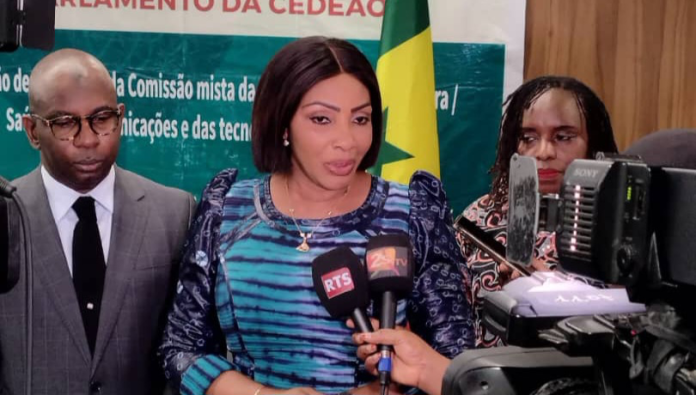The ECOWAS Parliament has highlighted education technology and innovation as essential tools for shaping the region’s future, stressing the role AI in advancing digital transformation in West Africa’s education sector.
At the meeting of the Joint committee on Education, Science and Culture, Commitee on Health, Commitee on Telecommunications and information technology, themed “Prioritizing education technology and innovation in the ECOWAS region on Monday in Dakar, Senegal, the Speaker of the ECOWAS Parliament, Hadja Memounatou Ibrahim, represented by the 2nd Deputy Speaker, Adjaratou Tralee New Coulibaly, said the region must embrace new models of learning to meet the demands of a rapidly changing world.
According to her, ECOWAS had taken proactive steps since 2003, when the Protocol AP3103 on Education and Training was adopted in Dakar to harmonise educational systems and promote excellence across member states.
“ECOWAS, with its young and dynamic population, rich in diverse cultures and endowed with growing economies, finds itself at a crossroads in the field of education. Traditional educational models, though fundamental, are increasingly being questioned.
“Two decades after the adoption of this protocol, we note significant progress. But we must also acknowledge lingering challenges such as poor infrastructure, unequal access to digital tools, and slow adoption by some member states.
“If Africa wants to take part in the global knowledge economy, it must allow every child to access information technologies from school,” she said.
The Speaker stressed that technology in education should not come at the cost of human connection.
She said the outcomes of the meeting would guide the region toward concrete strategies for digital learning and inclusive growth.
“We must ask: what future awaits the teaching profession when artificial intelligence supplants it? How do we prevent dehumanising education?
“We must build a West Africa where every child has the opportunity to learn, to thrive, and to contribute to the prosperity of our beloved community,” she maintained.
The Speaker of Senegal’s National Assembly, El Malick Ndiaye, represented by his deputy, Ismaila Diallo, called for a unified response to digital transformation.
He warned against marginalisation, calling on leaders to support innovations that build inclusive societies.
“We must reinforce the core components of learning so that we can build a non-marginalised society.More than 1,000 startups are active in Africa, with over $3.4 billion raised in 2020 alone. This dynamism calls for bold, ambitious, and unified projects in education.”
Representing Nigeria, Minority Whip and Vice Chairman of ECOWAS Parliament’s Health Standing Committee, Senator Osita Ngwu, described the meeting as a timely platform to reflect on the region’s educational growth.
He stated that while Nigeria is ahead in many areas, there is always room for learning and improvement.
“The theme of this particular meeting is very important because the world is growing technologically. We have to stay in touch to be sure we’re not left behind. This is going to help us understand where we are, where we are supposed to be, and what we can learn from others.”
On artificial intelligence, Ngwu said the country must continue evaluating its laws to keep up.
“AI has both positives and negatives. We will continue to be dynamic and change as time goes on.
“We mean business. Everything we do is to ensure that Nigeria is not left behind. I ask our people to continue to support us as we align with global standards in technology and innovation.”
The meeting is expected to produce recommendations for adoption across ECOWAS member states.






